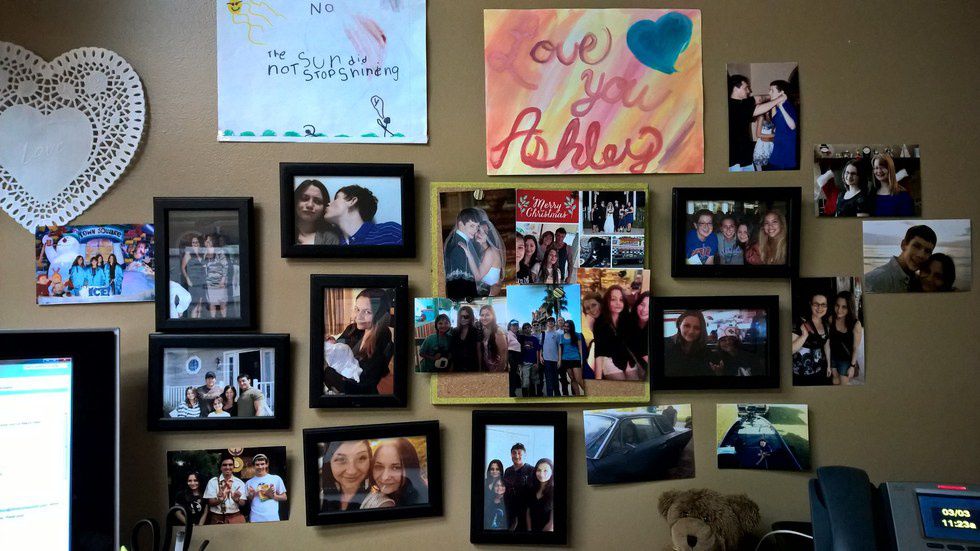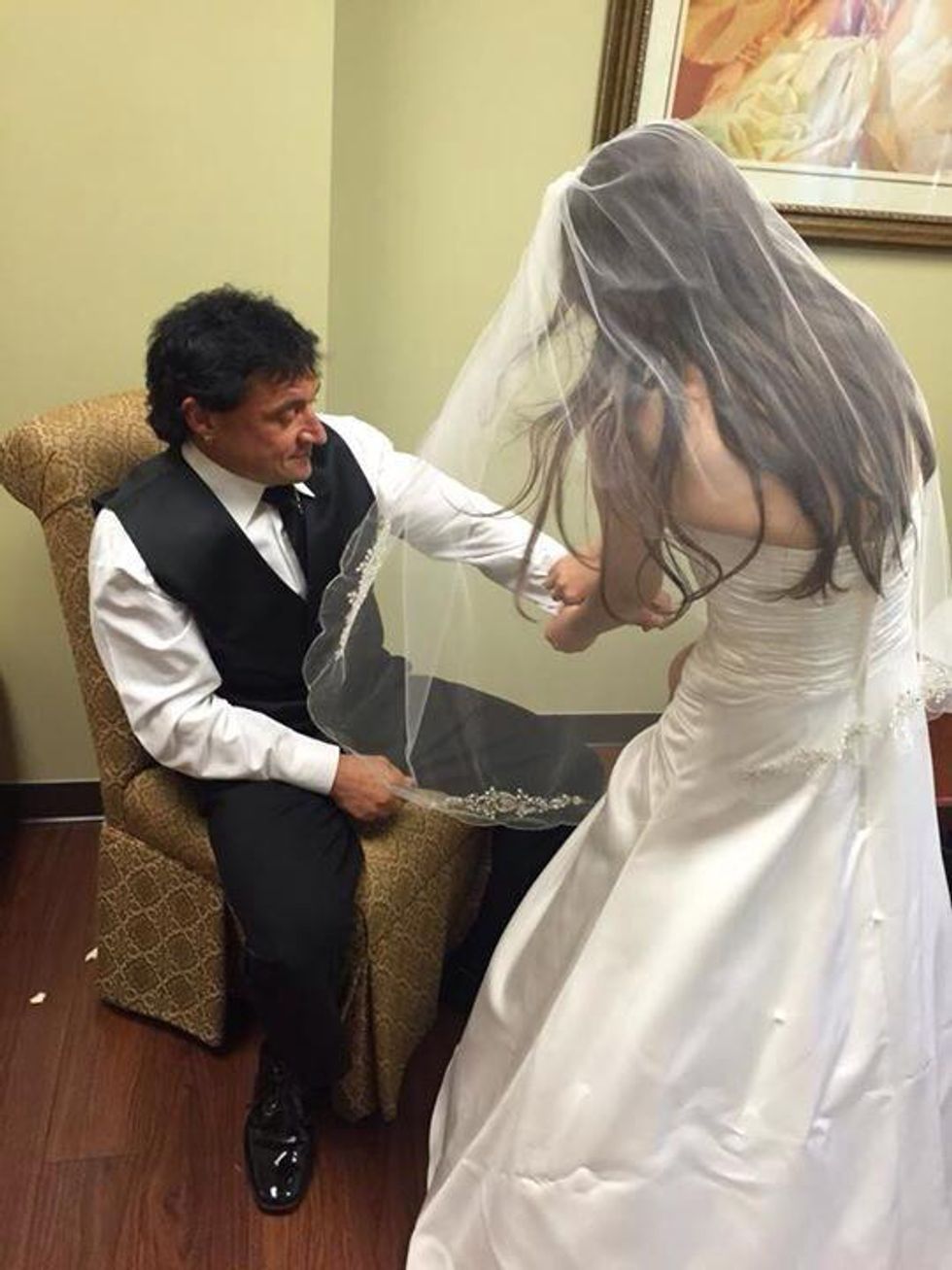I’d like to start off this article by noting that despite its presence in pop-culture and in some beginning psychology classes, there is a lack of empirical evidence supporting Kübler-Ross’s 5 stage model of grief. However, due to that same familiarity, I have chosen to use the Kübler-Ross grief model as a vehicle for this “Stages of Grief” series. More information about the Kübler-Ross grief model can be found here.
If you have recently lost someone you love and feel you have no one to talk to, please don’t hesitate to reach out to the Crisis Text Line by texting the word “start” to 741-741.
I keep mementos everywhere.
Photos line the walls of the staircase leading up to my apartment. At my home desk, crooked-lettered notes from my baby sister from my first round of college encourage me in my current endeavors. Above my desk at work, I’ve got what I refer to as a “shrine” to my family: pictures ranging from childhood to my wedding; paintings given for birthdays or “just because”; I’ve even included a couple of me and my work family, because – as with my biological family – I don’t know where I’d be without them.
Being surrounded by these things – these photos and pictures and gifts that were given and taken out of love - I feel my family’s energy with me. I feel like they’re with me, always. I try to tell myself that the same feeling applies to my father – that I feel him with me. And to an extent, I do.
But it’s more forced.
In my car, I’ve got his prayer card between my RPM meter and speedometer. On my dash, I’ve got a flower from his funeral that I carefully reposition to its proper place every time I drive – right in my line of sight. A picture I took of him at a race is my phone’s current lock screen. I have the picture of his headstone saved to my phone. His face grins down at me from my staircase, desks, and Facebook page. I’ve juxtaposed his life and death; he’s everywhere except in the way it matters. Yet, somehow, I’m still able to fool myself.
Driving to work jamming to one of our favorite songs comes the fleeting, errant thought – “I’ll never hear his voice again.” My dad loved making up songs. And tears may pinprick my eyes, they might not; I make my mind come to a screeching halt, sing louder, bang out the beat on the steering wheel, and force the thoughts back.
I tell everyone the truth when they ask me how I’ve been: it depends on the day. When it’s hard, even the slightest bit, I hole up, whether in work or books or anything else, absolutely anything that can distract me for more than 30 seconds. When I’m in that mood, I’m not trying to avoid him or his memory; I just want to give myself a moment of reprieve from the things that bring me heartache.
Just a moment.
I’ve had a history of not taking care of myself. It’s in my nature, I guess: to worry more about others and not be concerned with what happens to me until the situation finally blows up in my face. And yet, like Sisyphus rolling his boulder up the hill, I did it over and over again.
When my dad died, I knew how important it was to stick with my support system. I knew it was important to keep my circle tight, to be honest, and open with my feelings, reach out even when it was hard to do so, especially because that’s when I’d need the most help. At the beginning, I was able to do it.
But I can’t now.
I hate burdening people. My friends are going through big changes in their lives; my mother is going through pain unimaginable. And I hate going to my sisters because – I’m the big sister. I hate putting myself in a position where they might have to take care of me, because I’m supposed to take care of them. At some point, that worry of burdening turns into putting off phone calls and answering texts. I rationalize, I’ll answer when I’m feeling better. Feeling better takes longer than it seems; and suddenly I find myself isolated.
My dad rarely talked about his worries. When he did, it was usually because it was a bad day. I’m like him in a lot of ways; maybe I’m emulating him in this way as well. But for the sake of my family, I can’t be.























